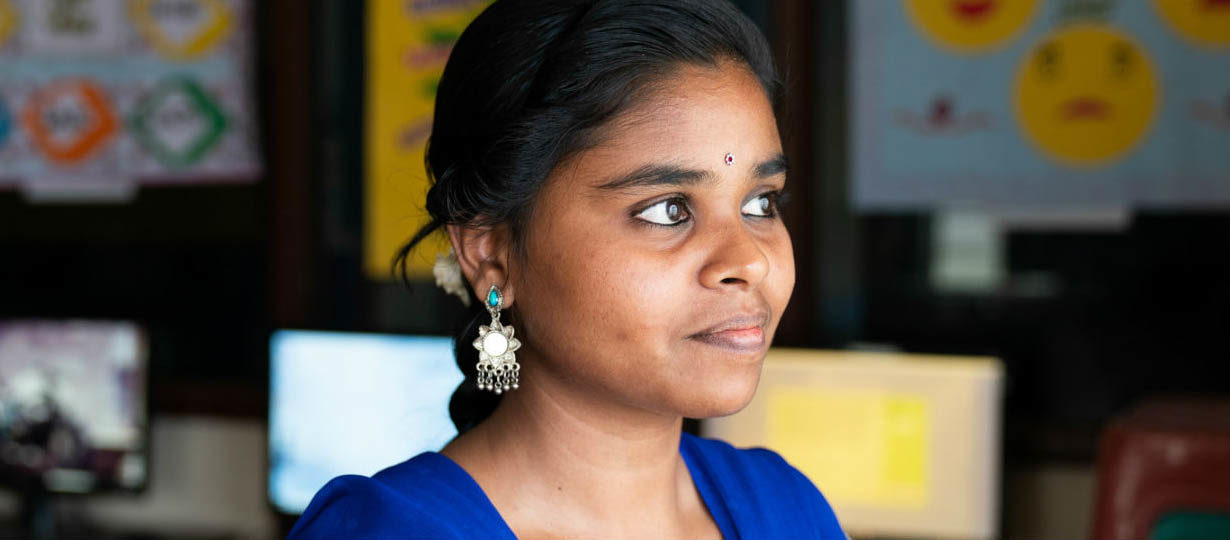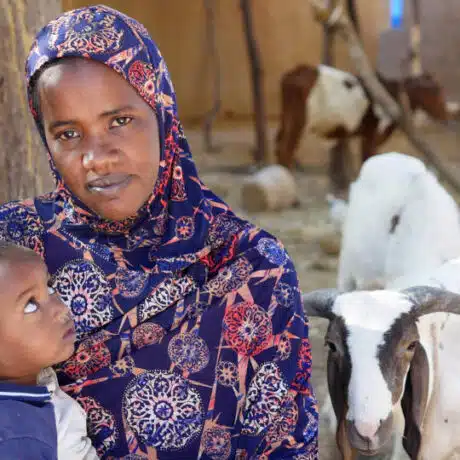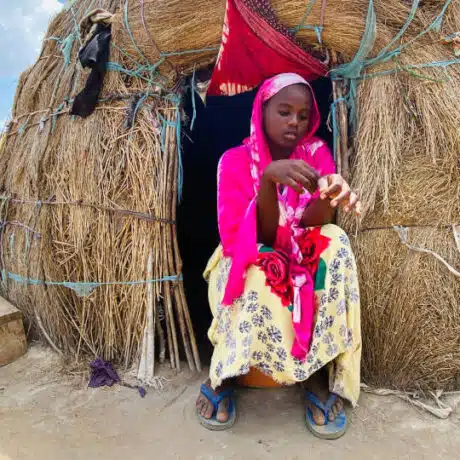News and Stories - Education - 6 June 2019
Taking the Lead Girls and young women on changing the face of leadership

A leader treats everyone equally. She should know about everybody in her community. She should have experience; she should not discriminate. She wants to make her society better.
This is the inspiring feminist vision of leadership of a girl from India, interviewed by Plan International and the Geena Davis Institute on Gender in Media. Hers is just one of the powerful insights on leadership of 10,000 girls and young women, from 19 countries, in the Taking the Lead report.
Girls are redefining what it means to be a leader and projecting powerful self-assurance about their own potential. Almost two thirds of the girls and young women who participated told us they are confident in their ability to lead and three-quarters actively want to become leaders in their careers, communities or countries.
This is good news for the future. Countries that are led by women and are more gender equal have greater economic success, governments that are less corrupt and societies with a higher quality of life. Sparking a new revolution in girls’ power could therefore be the paradigm shift the world needs to succeed on the Sustainable Development Goals – the global roadmap aimed at positive progress for people and planet.
We know it won’t be easy, and the girls we interviewed are only too aware of what stands in their way. “The nail that sticks up gets hammered down,” was the bleak view shared by one girl from Japan. Of the girls we spoke to, 94% believed that being a leader involved being treated unfairly as compared to men and 93% felt female leaders experienced unwanted physical contact.
Alarmingly, this perception was stronger among young women who had some experience of leadership than those who had none. “Sometimes there is violence against ladies when they want to become leaders; they will see you as nothing in front of them because of your gender,” said one girl from South Sudan. As they get older, girls start to be held back by the knowledge that women leaders have a hard time, by the lack of female role models, and by pervasive and deep-rooted sexism. They see the hard truth that only 18% of government ministerial positions worldwide are held by women and only 5% of Fortune 500 CEOs are women.
Yet, with Plan International’s new Girls’ Plan, we can start to turn things around. We have found a way forward for busting norms and stereotypes and addressing the root causes of what holds girls back. A holistic girls-led investment strategy that’s complete with costed, tested and scalable solutions for changing the future with and for millions of girls. It’s time now to make the vision of girls’ leadership into a global reality. Join us before it’s too late for the next generation of girls.
– AB Albrectsen Global CEO, Plan International
Read the full Taking the Lead report here.
What does leadership mean to girls and young women?
This research is an in-depth and ambitious look at female leadership: close to 10,000 girls and young women shared their ideas and experiences.
So what does it take for girls to become leaders, to take control of their lives and their futures: at home, at work and in their communities and countries?
Key findings – Australian young people aged 15-25*:
- Three-quarters (71%) of Australian girls surveyed had confidence that they could be leaders (a little, somewhat or very confident). Only one in 10 said they were not at all confident in their ability to lead. This compares well to the global figures, where 76% of girls said they wanted to be a leader.
- Three-quarters (73%) of female respondents want to be a leader in their career. This desire grew as girls got older. One in three (31%) want to be a leader in their community and 32% want to lead their family. However, twice as many boys/men said they wanted to lead their country than girls/women (16% versus just 9% of girls/women).
- Almost half (43%) of girls and young women surveyed say their gender could get in the way of them becoming a leader. This is significantly higher than the 5% of boys and young men who believe this is the case. Slightly more women said there were not enough opportunities for them to lead (56% versus 47% of men/boys).
- One in three females believed starting a family would get in the way of becoming a leader (32%) and half say there are not enough opportunities to lead (56%).
- The majority (81%) of girls and young women surveyed thought women in leadership were treated unfairly because of their gender, 10% said this was always the case. Overall, 9% of girls/women said women in leadership were never or rarely treated poorly, compared to 26% of boys/men.
- The vast majority of girls and women surveyed (87%) say female leaders sometimes, often or always experience unwanted contact, with 7 per cent believing they ‘always’ do. Only 1 per cent of girls said women leaders never experienced unwanted contact.
* anonymous online survey of 314 Australian young people aged 15 to 25-years-old conducted by Plan International Australia and Ipsos in May 2019, replicating parts of the ‘ Taking the Lead’ global survey.
Key findings of the Plan International’s ‘Taking the Lead’ global survey of girls:
- The longer girls stay in education the more confident they are in their abilities
- Overall girls perceive a lack of respect for, and harsher criticism of, female leaders
- 59.3% of girls and young women want to be a leader in the workplace
- Young women from low income countries are more likely to want to be leaders of their country, community or family than those from higher income countries
- Only 5% say they have no confidence at all in their ability to lead
Taking the Lead: Girls and Young Women on Changing the Face of Leadership was jointly produced with the Geena Davis Institute on Gender in Media.
Redefining leadership
Girls are defining leadership for themselves. For them, the most important leadership qualities are striving for social and gender justice, making decisions collectively and leading in a way that empowers and helps others.But what girls and young women see around them is not encouraging. In terms of power and control – who makes the decisions at family, local, corporate and national level – we are a long way from their vision of leadership and from achieving gender equality.
The lack of female role models, which runs through all levels of society, restricts girls’ ambitions and means that changing the face and qualities of leadership will be harder for them to achieve.
This research, by the Geena Davis Institute on Gender in Media and Plan International, gives girls’ recommendations on redefining leadership and the place of girls as power-holders. Girls were surveyed about their leadership aspirations, experience, confidence, encouragement role models, discrimination and more.





